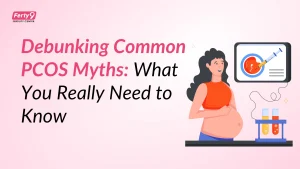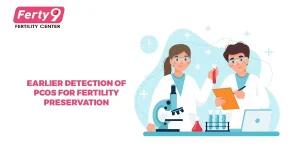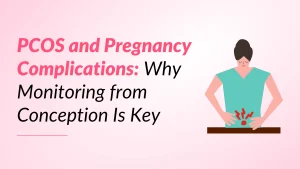PCOS treatment in Hyderabad is performed professionally and obviously, patients can expect much from the services of PCOS specialist in Hyderabad.
PCOS as a common health condition, affects several women of childbearing age, causing serious health issues, such as diabetes, cardiovascular disease, depression, and even increased risk of endometrial cancer.
Principles of PCOS treatment in Hyderabad
Although there happens to be no cure for PCOS right now, there are several ways to reduce the severity of symptoms of PCOS. A well-balanced diet, regular exercise, as well as a healthy lifestyle, and of course proper management of stress do help manage PCOS. Regulating weight gain and also hormonal imbalance by avoiding certain foods and having the best foods for PCOS as a diet does help.
Diet along with lifestyle changes and physical activity can positively impact the health of PCOS females. Any physical activity does bring down insulin levels and also helps improve mood. Aerobic exercises including brisk walking, swimming as well as biking are best. Also, PCOS females can rather endure resistance training exercises, including sit-ups, push-ups, and also squatting.
Also, behavioral strategies do help achieve weight management goals. Focus on:
- On a goal
- Psychological well-being
- Getting social network support
- Self-monitoring techniques
Also, incorporating new lifestyle changes required for PCOS females might help manage the disorder.
Foods to avoid if having PCOS:
1. Processed food
Foods such as white rice, candies, loaves of bread, potatoes, and pastries do have refined flour. Refined carbohydrates happen to be the worst food for PCOS. Refined carbohydrates increase insulin production in one’s body, causing diabetes.
2. Coffee or caffeinated drinks
Coffee contains caffeine, and its consumption does raise estrogen hormone (female hormone) levels in one’s body. In PCOS, hormone levels happen to be already disturbed. An increased amount of coffee intake can lead to further complications.
3. Fried foods
These have large amounts of unhealthy saturated fats as well as trans fats and are unhealthy, thus causing the risk of weight gain. They also do increase blood sugar levels and can lead to gastric problems as well as bloating.
4. Alcohol
Few doctors suggest complete avoidance of alcohol if having PCOS. Alcohol consumption can indeed increase the levels of testosterone hormones and also tend to disturb the hormones required for ovulation.
5. Red Meat
Excess consumption of red meat like steaks, pork, and hamburgers can decrease the level of progesterone hormone. This hormone is rather required for pregnancy and a healthy menstrual cycle. It also does cause more inflammation in one’s body. Also, red meat has bad fat, which does cause weight gain and worsens the symptoms of PCOS.
Others:
- Sugary beverages:
- Processed meat:
Best Foods for PCOS:
1. Fruits
Fruits are loaded with nutrients and have high fiber content like apples, avocados, kiwis, peaches, and plums. Fruits full of anti-inflammatory properties like grapes and berries are good for PCOS.
2. Vegetables
Broccoli, cauliflower as well as leafy green vegetables such as spinach and kale are well-suited for a PCOS diet. They contain high-fiber and are full of vitamins and nutrients.
3. Fatty fishes
Mackerel, tuna, as well as salmon are rich protein sources and are also healthy fats. They are anti-inflammatory foods and fight the inflammation that does stimulate the ovaries to produce more androgen. Avoiding fried and processed meat with high sodium and trans fat is better.
4. Legumes, dried beans, and lentils
These are full of fibers and plant proteins. Chickpeas, black beans, and yellow lentils are good for females with PCOS as they aid weight management.
5. Healthy Nuts
Walnuts, pistachios, almonds as well as pine nuts can be added to the PCOS diet. They do have high calories as well as healthy fats in them. They also do reduce inflammation and prevent PCOS symptoms from worsening. Walnuts and almonds can be part of the PCOS diet.
Others:
- Seeds
- Spices and herbs
Conclusion
Many females have found some relief from symptoms by avoiding these foods. It helps to consult PCOS specialists in Hyderabad for complete information o the treatment processes.




























